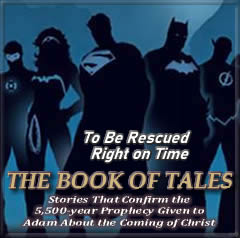The Silence of God
Because the Voice of Creation Speaks as Loudly as Any Biblical Book Ever Written
One of the most important things to know about the history of God’s revelation is that in every age God begins by providing the highest level of His wisdom to humanity. But inevitably that wisdom is taken for granted and in response to human apathy, God withdraws His wisdom, which is then lost for an extended period, in direct relation to the length that His wisdom was present among the people of that age. Then, after a similarly extended, but very specific, period, God sparks an awakening, at which time a new generation is given another chance to appreciate what was previously squandered.
In fact, the central drama of The Bible is that of an infinite God Who repeatedly stoops down to interact with finite humans, how those humans respond in awe and reverence with this divine interaction, and how that marvelous relationship is inevitably spoiled by our presumption, pride, and selfishness.
It happened in the case of Adam and Eve, when God promised them eternal life, but they chose death. It happened with Noah and his children after the Great Flood, when God promised to renew the Earth, but they gathered around a tower in rebellion. And it happened to the sons of Jacob, when God called them to be a blessing to the whole world, but jealousy drove them to sell their own brother Joseph into slavery. It happened when Moses led the Children of Israel out of Egyptian bondage, but the people preferred to worship a golden calf. It happened when Joshua led the Israelites in their occupation of the Promised Land, but they chose to serve the idols of the very people they were ordered to displace. It happened when a mighty nation was forged by the hand of David and Solomon, but was later divided, just like the heart of their king who loved many strange women. And it happened when Ezra and Nehemiah inspired the Jews to rebuild the Temple at Jerusalem after their return from Babylonian Captivity, but they embraced doubt and fear when their hope in that new day faded too soon.
Story Continues Below
Says Richard Price—the founder and CEO of Academia.edu—on his podcast In Depth With Academia:
Conquering the Joy of Cynicism and the Death of Beauty: How Your Worldview Shapes the World You Live In is:
To hear Price’s book review of Conquering the Joy of Cynicism and the Death of Beauty, CLICK HERE.
To hear Kent and Zen Garcia talk about correcting biblical misconceptions, from October 28, 2021, CLICK BELOW.
Story Continues From Above
Considering the purpose of The Bible is to reveal God’s ways, you’d think that anyone reading it through the ages would pick up on this pattern and resist repeating this same tendency. But sadly, mere mortals that we are, we don’t. As it is written:
There came a man who was sent from God. His name was John. He came as a witness to testify about the Light so that through him everyone might believe. He himself wasn’t the Light, but he came to testify about the Light.
The true Light Who gives light to every man was coming into the world. He was in the world, and though the world was made through Him, the world didn’t recognize Him. He came to His own, and His own received Him not.
The Gospel of John
In all of this we see an emerging pattern—from Adam to Noah, from Jacob’s sons to the Children of Israel, from the Jews in Ezra’s day to those in Jesus’ day. Again and again, God willingly communes with humanity, and they, in turn, ruin God’s original plan by repeatedly turning it into something altogether alien.
Fortunately for our sake, though, the next most important thing to know about the history of God’s revelation is that even when God withdraws His wisdom, in response to humanity’s apathy and disregard for Him, God never entirely removes His revelation. Even though the direct revelation of God to humans is put on a “temporary hold,” as it were, another form of revelation never stops communicating the knowledge of God’s presence and power to an onlooking world. That other revelation is the one that is conveyed via the creation of the Universe.







